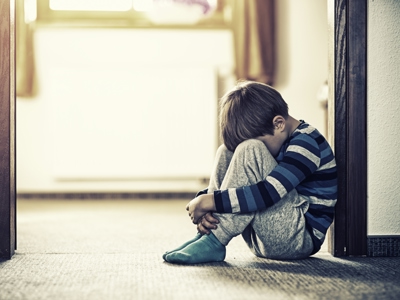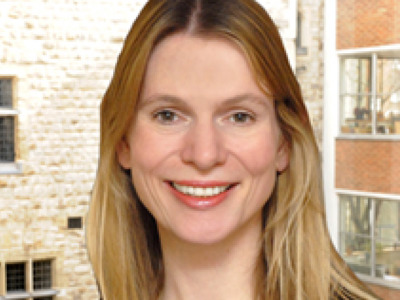IICSA Investigation Report into child protection in religious organisations
Head of our Abuse team, Alison Millar, discusses the recent report from the Independent Inquiry into Child Sexual Abuse (IICSA) regarding child protection in religious organisations and settings
Posted on 04 September 2021
The Independent Inquiry into Child Sexual Abuse (IICSA) Investigation Report into child protection in religious organisations and settings exposes a devastating culture of self-denial, major barriers to reporting, and weak or non-existent child protection procedures.
The very limited oversight and assurance of child protection in those areas is failing to safeguard many children from abuse.
The Report also creates a path to urgent changes that we, as abuse lawyers, have been calling for over many years and can only hope that at last are going to be put in place.
The investigation that resulted in the report examined child protection in 38 religious organisations in England and Wales. Together, they had “significant or even dominant influence on the lives of millions of children”.
I recognise from my own work with survivors of religious abuse the picture of egregious failings by organisations across diverse beliefs.
A state of self-denial about the existence of child sexual abuse in their communities and congregations was evidenced by the Mosques and Imams National Advisory Board (MINAB), which told IICSA “sexual abuse is limited if not rare within the Muslim community.”
The Union of Orthodox Hebrew Congregations (UHOC) said disclosures of Charedi child sexual abuse are thought to be lower in number than would be expected for the size of population since “there are significant factors in the community that are likely to reduce the incidence of child abuse.”
However, victims and survivors and organisations supporting them or providing research and advice to faith organisations confirmed that sexual abuse does occur in these communities and more cases are emerging or are likely to come out as they have with other religious institutions.
Barriers to reporting child sexual abuse within religious settings are numerous, varied and powerful and include community values that site the responsibility for the abuse with victims and view disclosures as bringing shame or dishonour on the individual and/or their family. Within some religious traditions and communities, there is an absence of open discussion of matters relating to sex, and children may not have the vocabulary to describe what has happened to them. Abusers may use religious texts and beliefs to justify their actions. Religious leaders in all faiths have significant power, making it very difficult to question their behaviour.
Other barriers may arise from gender disparity, with more males in positions of responsibility and patriarchal cultures; distrust of external agencies; fear of external reporting and reputational damage, which may lead organisations to wish to manage allegations internally. In some communities, rules or procedures may be believed to prevent the reporting of abuse to the secular authorities. Pressure may be placed on victims and survivors to forgive their abusers.
Child protection policies and procedures were very variable and some settings do not even have basic systems.
IICSA heard about “disguised compliance”, where the main concern was to give the impression of having effective child protection procedures but the reality is half-hearted or non-existent implementation. The Shree Hindu Temple and Community Centre said of their 2017 Safeguarding Children and Adults Policy: “Honestly, hand on heart, it is probably put in an office file and kept in the office there to refer to.”
With no legal obligation on religious organisations and settings to follow guidance on how to protect children and respond to abuse, a number did not carry out the vetting checks required by the Disclosure and Barring Service.
The definition of “regulated activity” under the current disclosure and barring regime means some people regularly working with children in the faith sector are not checked against the barred list for children and vulnerable adults. The Investigation Report says that this could mean that an individual who had, for example, been dismissed as a teacher as a result of safeguarding concerns would be able to undertake some volunteer or other activity without the religious organisation knowing that they had been barred.
Despite 20 years of statutory bodies advising religious organisations to provide safeguarding training there was also significant variation in what is provided. For example, IICSA heard that the Jehovah’s Witnesses arrange their own in-house training and “it is very much a religious application of Bible principles”.
In considering how religious organisations and settings respond to allegations of abuse, the Inquiry found that there was a range of practice and some had failed to establish clearly defined procedures for investigating concerns. Very few of those looked at had arrangements in place for professional counselling or therapy services.
I was glad to see that the Investigation Report specifically looked at the issue of child protection in “supplementary schooling”, given that there are potentially 250,000 children in England and Wales receiving education in supplementary schools with a faith focus or that are organised by a religious organisation.
There is a lack of reliable information about how many settings there are, how many children attend them and for how many hours, what activities are provided and who runs them. In a small number of settings such provision is either full time or the only educational input that a child receives. These include private Islamic schools and yeshivas providing religious education for boys from the Charedi Orthodox Jewish community.
The Report pointed to a legislative gap in this area as a place that only teaches religious instruction cannot be registered as a school, even if this is the only education a child or young person receives, and such settings will therefore be exempt from regulation. IICSA rightly states that a system is required in which it is possible to take preventative action to tackle potential abuse at such schools and to ensure that all settings have basic standards in place in respect of child protection.
I believe there has been too much focus by the Government on the prevention of radicalisation and extremism in out-of-school settings to the detriment of putting in place measures to safeguard children from sexual abuse and other forms of abuse and neglect.
IICSA recommends legislation on the definition of full-time education and says Ofsted should be provided with sufficient powers to examine the quality of child protection when it undertakes inspections of suspected unregistered schools.
It is anticipated that one of the issues that will be addressed more fully in IICSA’s final report is mandatory reporting – a proposed duty to report abuse to the statutory authorities - and it In my view, it is vital that this is made a part of our child protection system and that the threshold for reporting is not set too high – it should cover allegations and suspicions as well as disclosures of abuse to be effective, and criminal sanction is necessary to overcome barriers to reporting abuse that were identified and discussed in this Investigation Report such as cultures in some communities which discourage external reporting and victimise those who speak out.
The Investigation Report recommends that all religious organisations should have a child protection policy and procedures, updated regularly, with professional child protection advice, and all organisations should have regular compulsory training for those in leadership positions and those who work with children and young people. Surely this is the absolute minimum and the fact that IICSA has to make a recommendation in this regard for religious organisations and the government to respond to within six months is indicative of the depth of the failings to keep children safe in this sector. IICSA comments, “what marks religious organisations is the explicit purpose they have in teaching right from wrong; the moral turpitude of any failing by them in the prevention of, or response to, child sexual abuse is therefore heightened.”
It is imperative that the religious organisations and settings who participated in this Inquiry see that there is an impetus for change and that fear of reputational damage must not hold back necessary measures to ensure the safety and well-being of children. As the Investigation Report says, freedom of religion and belief can never justify or excuse the ill-treatment of a child, or a failure to deal properly with child abuse perpetrated by a member of a congregation or a religious leader.



